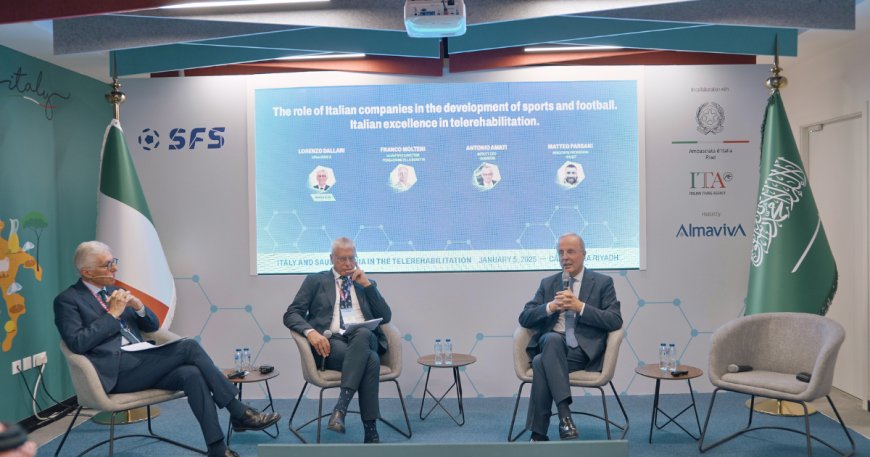Technological innovation and rehabilitation: the synergy between biosensors, artificial intelligence and telemedicine
Medicine and technology are rapidly evolving, bringing new opportunities to improve the lives of people, particularly those facing physical disabilities. An important area of development involves the use of biosensors and artificial intelligence (AI) for the personalization and enhancement of rehabilitation, both for athletes and individuals with neurological injuries. Recently, Professor Franco Molteni highlighted how innovative technologies can be used to train cognitive and physical abilities, such as self-control, which is essential for athletes during crucial moments in a competition. Studying eye […] L'articolo Technological innovation and rehabilitation: the synergy between biosensors, artificial intelligence and telemedicine proviene da SFS.

Medicine and technology are rapidly evolving, bringing new opportunities to improve the lives of people, particularly those facing physical disabilities. An important area of development involves the use of biosensors and artificial intelligence (AI) for the personalization and enhancement of rehabilitation, both for athletes and individuals with neurological injuries.
Recently, Professor Franco Molteni highlighted how innovative technologies can be used to train cognitive and physical abilities, such as self-control, which is essential for athletes during crucial moments in a competition. Studying eye movement, for example, can provide vital information about emotional control and stress management, factors that influence athletic performance and overall quality of life.
In the rehabilitation field, the integration of wearable exoskeletons, which allow individuals with spinal cord injuries to walk, represents one of the most advanced frontiers. These devices, together with telemedicine, could radically transform the healthcare landscape. With the integration of advanced technologies such as biosensors, experts can monitor and analyze real-time data, thereby improving treatments and accelerating recovery.
Matteo Palzani, an aerospace engineer who suffered a severe accident in 2017, recently shared his experience with wearable sensors used to monitor vital signs and physical exertion during rehabilitation. He emphasized the importance of collecting and analyzing data from these devices to optimize treatments and ensure patients receive the most targeted care. Tele-rehabilitation, in particular, provides continuity in treatment, keeping patients connected with their doctors regardless of their geographical location.
Another key aspect of this progress is the internationalization of research and technological applications. In particular, the collaboration between Italy and Saudi Arabia is becoming increasingly strong, with significant projects aimed at developing innovative rehabilitation solutions. Antonio Amati of Almaviva emphasized how digital healthcare, including tele-rehabilitation, can revolutionize healthcare by making the home the primary place of care.
This approach not only facilitates physical recovery but also promotes psychological well-being, allowing individuals to maintain connections with their loved ones and an active social life. The hope is that, through continued investment in digital technologies, future medicine will not only heal but also rehabilitate, restoring dignity to all those affected by physical or neurological disabilities.
Italy is playing a key role in this process, with numerous projects involving public and private institutions, such as the Politecnico di Milano, working closely with experts in biotechnology and rehabilitation. These advancements remind us of how technology, when used in a humane and precise manner, can truly make a difference, bringing innovation and hope into the lives of many people.
L'articolo Technological innovation and rehabilitation: the synergy between biosensors, artificial intelligence and telemedicine proviene da SFS.












































